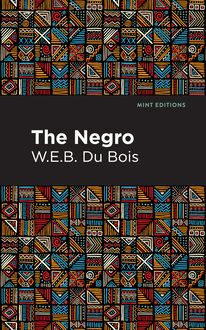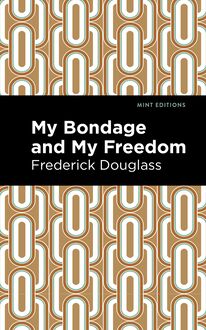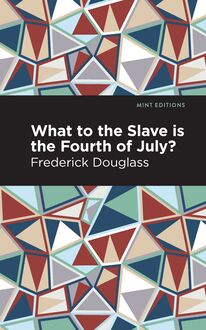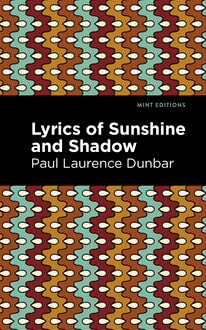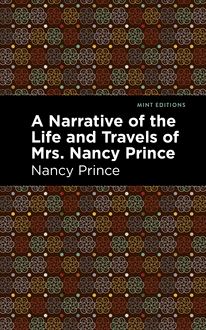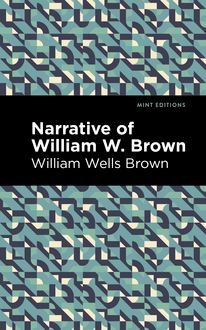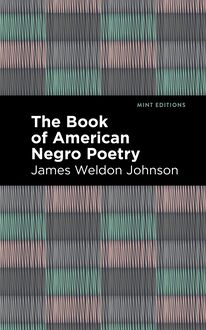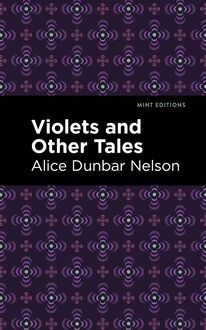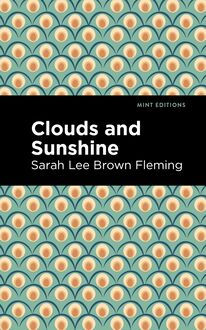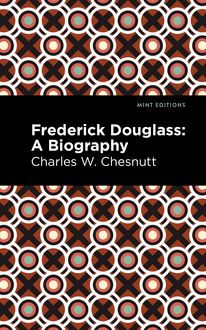-
 Univers
Univers
-
 Ebooks
Ebooks
-
 Livres audio
Livres audio
-
 Presse
Presse
-
 Podcasts
Podcasts
-
 BD
BD
-
 Documents
Documents
-
- Cours
- Révisions
- Ressources pédagogiques
- Sciences de l’éducation
- Manuels scolaires
- Langues
- Travaux de classe
- Annales de BEP
- Etudes supérieures
- Maternelle et primaire
- Fiches de lecture
- Orientation scolaire
- Méthodologie
- Corrigés de devoir
- Annales d’examens et concours
- Annales du bac
- Annales du brevet
- Rapports de stage
La lecture à portée de main

Vous pourrez modifier la taille du texte de cet ouvrage
Découvre YouScribe en t'inscrivant gratuitement
Je m'inscrisDécouvre YouScribe en t'inscrivant gratuitement
Je m'inscrisEn savoir plus
Vous pourrez modifier la taille du texte de cet ouvrage
En savoir plus

Description
True Love: A Story of English Domestic Life (1891) is the first and only novel by Sarah E. Farro. Inspired by the works of Dickens and Thackeray, this novel models itself on the stories of romance and everyday life popular in Victorian England. When True Love: A Story of English Domestic Life appeared in print, Farro became the first black woman to publish a novel in the United States. Despite this distinction, her name and reputation would largely have faded into history if not for the effort of recent scholarship, which seeks to restore her status as a pioneering African American woman while contextualizing her work within the study of Victorian literature. Mrs. Brewster is an unhappy woman. A carpenter’s daughter, she spent years in poverty before receiving a sizable inheritance from a distant relative, granting her and her two daughters a minimum of stability for the first time in their lives. Despite this, she endures an abusive, joyless marriage to a merchant tailor and longs for a way to escape middle class life. When her daughter Janey becomes engaged to a wealthy aristocrat, Mrs. Brewster grows hopeful of the opportunity to tie herself to her fate. Not far from the Brewster home, Charles Taylor lives in an ornately decorated mansion. Having inherited a large sum from his capitalist father, he leads a boring, luxurious existence. For Taylor, marriage is a matter of romance, a bond between a man and a woman with no economic significance whatsoever. For Mrs. Brewster, her daughter is “worth her weight in gold.” With a beautifully designed cover and professionally typeset manuscript, this edition of Sarah E. Farro’s True Love: A Story of English Domestic Life is a classic of African American literature reimagined for modern readers.
Sujets
Informations
| Publié par | Mint Editions |
| Date de parution | 21 mai 2021 |
| Nombre de lectures | 0 |
| EAN13 | 9781513287652 |
| Langue | English |
| Poids de l'ouvrage | 3 Mo |
Informations légales : prix de location à la page 0,0300€. Cette information est donnée uniquement à titre indicatif conformément à la législation en vigueur.
Extrait
True Love
A Story of English Domestic Life
Sarah E. Farro
True Love: A Story of English Domestic Life was first published in 1859.
This edition published by Mint Editions 2021.
ISBN 9781513282633 | E-ISBN 9781513287652
Published by Mint Editions®
minteditionbooks .com
Publishing Director: Jennifer Newens
Design & Production: Rachel Lopez Metzger
Project Manager: Micaela Clark
Typesetting: Westchester Publishing Services
C ONTENTS P REFACE I. M RS . B REWSTER ’ S D AUGHTERS II. T HE R ESIDENCE OF C HARLES T AYLOR III. C HARLES T AYLOR R ECEIVES A M ESSAGE IV. A N U NEXPECTED D EATH V. C HARLES T AYLOR ’ S R EGRETS VI. D R . B ROWN E XPLAINS TO C HARLES VII. J OHN S MITH ’ S D INNER P ARTY VIII. G EORGE T AYLOR G IVES A P ARTY IX. C HARLES R ECEIVES A NOTHER S TROKE X. A P EACEFUL H OUR
P REFACE
T he author is aware that she is entering a field which has been diligently cultivated by the best minds in Europe and America. Her design in the preparation of this story is to give to the public a sketch of her ideas on the effect of “true love.” I have tried to make the plot exciting without being sensational or common, although within the bounds of proper romance, and create a set of characters most of whom are like real people with whose thoughts and passions we are able to sympathize and whose language and conduct may be appreciable or reprehensible according to circumstances. Great pains have been taken to make this work superior in its arrangement and finish and in the general tastefulness of its mechanical execution. How nearly the author has accomplished her purpose to give to the public in one volume a clear and complete treatise on this subject, combining many fine qualities of importance to the reader, the intelligent and experienced public must decide.
S ARAH E. F ARRO
I
M RS . B REWSTER ’ S D AUGHTERS
A fine old door of oak, a heavy door standing deep within a portico inside of which you might have driven a coach, brings you to the residence of Mrs. Brewster. The hall was dark and small, the only light admitted to it being from windows of stained glass; numberless passages branched off from the hall, one peculiarity being that you could scarcely enter a single room in it but you must first go down a passage, short or long, to get to it; had the house been designed by an architect with a head upon his shoulders and a little common sense within it, he might have made a respectable house to say the least; as it was, the rooms were cramped and narrow, cornered and confined, and the good space was taken up by these worthless passages; a plat of ground before it was crowded with flowers, far too crowded for good taste, as the old gardener would point out to her, but Mrs. Brewster loved flowers and would not part with one of them. Being the daughter of a carpenter and the wife of a merchant tailor, she had scrambled through life amidst bustle and poverty, moving from one house to another, never settled anywhere for long. It was an existence not to be envied, although it is the lot of many. She was Mrs. Brewster and her husband was not a very good husband to her; he was rather too fond of amusing himself, and threw all the care upon her shoulders; she spent her time nursing her sickly children and endeavouring to make one dollar go as far as two. One day, to her unspeakable embarrassment, she found herself changed from a poor woman in moderate circumstances to an heiress to a certain degree, her father having received a legacy from a relative, and upon his death it was willed to her. She had much sorrow, having lost one child after another, until she had but two left. Then she lost her husband and father; then settled at Bellville near her husband’s native place, upon her limited means. All she possessed was the interest upon this sum her father had left her, the whole not exceeding $2,000. She had two daughters, Mary Ann and Janey; the contrast between them was great, you could see it most remarkably as they sat together, and her love for them was as contrasted as light is with darkness. Mary Ann she regarded with an inordinate affection amounting almost to a passion; for Janey she did not care; what could be the reason of this; what is the reason that parents, many such may be found, will love some of their children and dislike others they cannot tell any more than she could; ask them and they will be unable to give you an answer. It does not lie in the children; it often happens that those obtaining the least love will be the most deserving of it. Such was the case here. Mary Ann Brewster was a pale, sickly, fretful girl, full of whims, full of complaints, giving trouble to everybody about her. Janey, with her sweet countenance and her merry heart, made the sunshine of her home; she bore with her sister’s exacting moods, she bore with her mother’s want of love, she loved them both and waited on them, and carrolled forth her snatches of song as she moved around the house, and was as happy as the day was long. Ask the servants—they kept only two—and they would tell you that Mrs. Brewster was cross and selfish, but Miss Janey was worth her weight in gold; the gold was soon to be transplanted to a home where it would be appreciated and cherished, for Janey was the affianced wife of Charles Taylor. For nearly a mile beyond Bellville lived Charles Taylor, a quiet, refined gentleman, and the son of a wealthy capitalist; his father had not only made a fortune of his own, but had several bestowed upon him; he had died several years before this time, and his wife survived him one year. There were three sisters, a cousin and two servants that had lived in this family for a number of years.
The beams of the setting sun streamed into the dining-room of the Taylor mansion; it was a room of fine proportions, not dull and heavy as it is the custom of some dining-rooms, but light and graceful as could be wished. Charles Taylor, with his fine beauty, sat at one end of the room, Miss Mary Taylor, a maiden lady of mature years, good looking also in her peculiar style, sat opposite him, she wore a white dress, its make remarkably young, and her hair fell in ringlets, young also; at her right-hand sat Matilda, singularly attractive in her quiet loveliness, with her silver dotted muslin dress trimmed with white ribbons; at her left sat Martha, quiet in manner, plain in features; she had large gray eyes, reflective strangely deep, with a circle of darker gray around them, when they were cast upon you it was not at you they looked, but at what was within you, at your mind, your thoughts; at least such was the impression they carried. Thus sat this worthy group, deep in thought, for they had been conversing about the weather, that had been so damp, for it had been raining for months, and the result was a malarial fever, visiting the residents of Bellville, and it was very dangerous, for the sufferer would soon lapse into unconsciousness and all was over; and it was generally believed that the fever was abated. A rap at the door brought Charles Taylor to his feet, it was George, the old gardener, he had come to tell them the fever had broken out again. “What!” exclaimed Charles. “The fever broken out again?” “Yes, it have,” said George, who had the build of a Dutchman, and was taciturn upon most subjects; in manner he was most surly and would hold his own opinion, especially if it touched upon his occupation, against the world.
The news fell upon Charles’ heart like a knell; he fully believed the danger to have passed, though not yet the sickness. “Are you sure that the fever has broken out again, George?” he asked, after a pause. “I ain’t no surer than I was told,” returned George. “I met Doctor Brown, and he said as he passed, that the fever had broken out again.” “Do you know where?” asked Charles. “He said, I believe, but I didn’t catch it; if I stopped to listen to the talk of fevers where would my work be?” George moved on ere he had done speaking, possibly from the impression that the present talk was not forwarding his work. Taking his black silk hat Charles said, “I shall go out and see if I can glean any news; I hope it may be a false report.” He was just outside the walks when he saw Doctor Brown, the most popular doctor in the village, coming along quickly in his buggy; Charles motioned his hand, and the driver pulled up. “Is it true, this fresh report of fever?” “Too true, I fear,” replied the doctor. “I am on my way now, just summoned.” “Who’s attacked?” “Mary Ann Brewster.” The name appeared to startle Charles. “Mary Ann Brewster,” he uttered, “she will never pull through it.” The doctor raised his eye-brows as if he thought it doubtful, and motioned to his driver to move on. On the morning in question Mary Ann Brewster awoke sick; in her impatient, fretful way she called out to Janey, who slept in an adjoining room. Janey was fast asleep, but she was used to being aroused out of her sleep at unreasonable hours by Mary Ann and she threw on her dressing-gown and hastened to her. “I want some tea,” began Mary Ann, “I am as sick and thirsty as I can be.” She was really of a sickly constitution and to hear her complain of being “sick and thirsty” was nothing unusual. Janey in her loving nature, her sweet patience, received the information with as much concern as though she had never heard it before. She bent over Mary Ann and spoke tenderly, “where do you feel pain, dear, in your head or chest, where is it?” “I told you that I was sick and thirsty, and that’s enough,” peevishly answered Mary Ann. “Go and get me some tea.” “As soon as I can,” said Janey, soothingly. “There is no fire yet, the girls are not up, I do not think it can be later than four, by the look of the morning.” “Very well,” cried Mary Ann, the sobs being contrived by the catching up of her breath in temper not by tears, “you can’t call the maids I suppose, and you can’t put yourself the least out of the way to a
Attention
En entrant sur cette page, vous certifiez :
- 1. avoir atteint l'âge légal de majorité de votre pays de résidence.
- 2. avoir pris connaissance du caractère érotique de ce document.
- 3. vous engager à ne pas diffuser le contenu de ce document.
- 4. consulter ce document à titre purement personnel en n'impliquant aucune société ou organisme d'État.
- 5. vous engager à mettre en oeuvre tous les moyens existants à ce jour pour empêcher n'importe quel mineur d'accéder à ce document.
- 6. déclarer n'être choqué(e) par aucun type de sexualité.
YouScribe ne pourra pas être tenu responsable en cas de non-respect des points précédemment énumérés. Bonne lecture !
-
 Univers
Univers
-
 Ebooks
Ebooks
-
 Livres audio
Livres audio
-
 Presse
Presse
-
 Podcasts
Podcasts
-
 BD
BD
-
 Documents
Documents
-
Jeunesse
-
Littérature
-
Ressources professionnelles
-
Santé et bien-être
-
Savoirs
-
Education
-
Loisirs et hobbies
-
Art, musique et cinéma
-
Actualité et débat de société
-
Jeunesse
-
Littérature
-
Ressources professionnelles
-
Santé et bien-être
-
Savoirs
-
Education
-
Loisirs et hobbies
-
Art, musique et cinéma
-
Actualité et débat de société
-
Actualités
-
Lifestyle
-
Presse jeunesse
-
Presse professionnelle
-
Pratique
-
Presse sportive
-
Presse internationale
-
Culture & Médias
-
Action et Aventures
-
Science-fiction et Fantasy
-
Société
-
Jeunesse
-
Littérature
-
Ressources professionnelles
-
Santé et bien-être
-
Savoirs
-
Education
-
Loisirs et hobbies
-
Art, musique et cinéma
-
Actualité et débat de société
- Cours
- Révisions
- Ressources pédagogiques
- Sciences de l’éducation
- Manuels scolaires
- Langues
- Travaux de classe
- Annales de BEP
- Etudes supérieures
- Maternelle et primaire
- Fiches de lecture
- Orientation scolaire
- Méthodologie
- Corrigés de devoir
- Annales d’examens et concours
- Annales du bac
- Annales du brevet
- Rapports de stage
